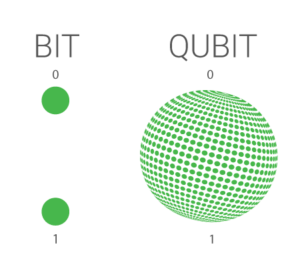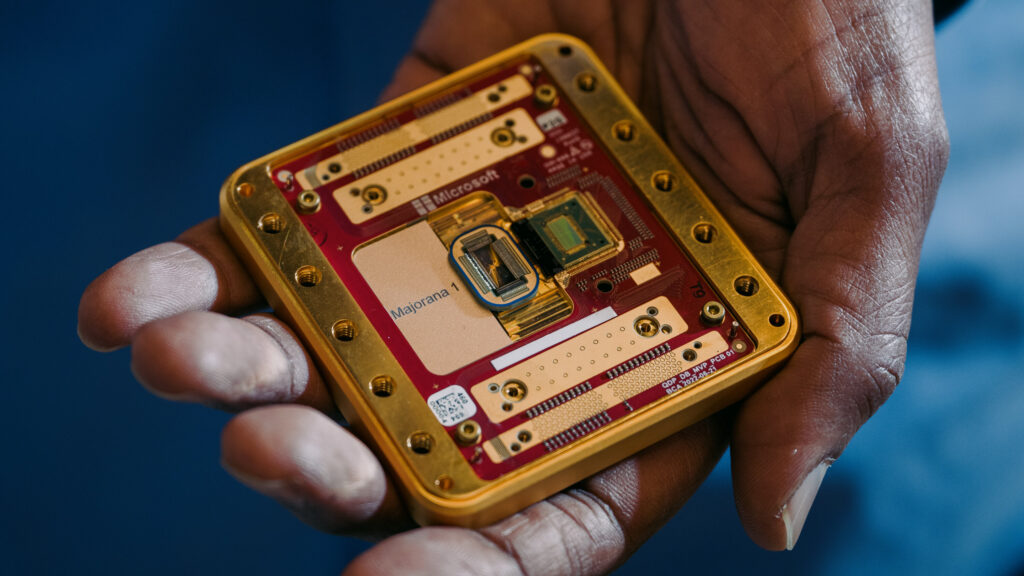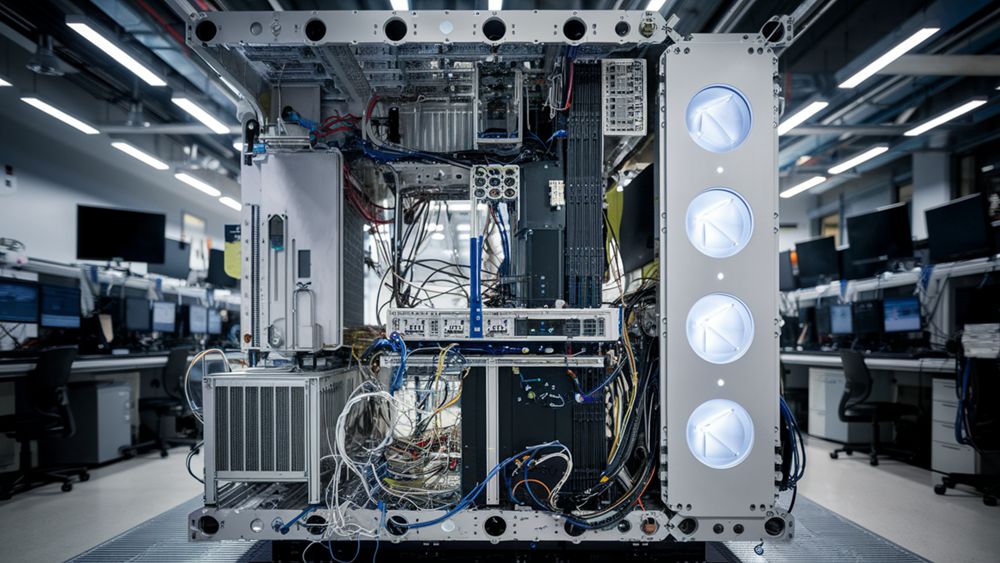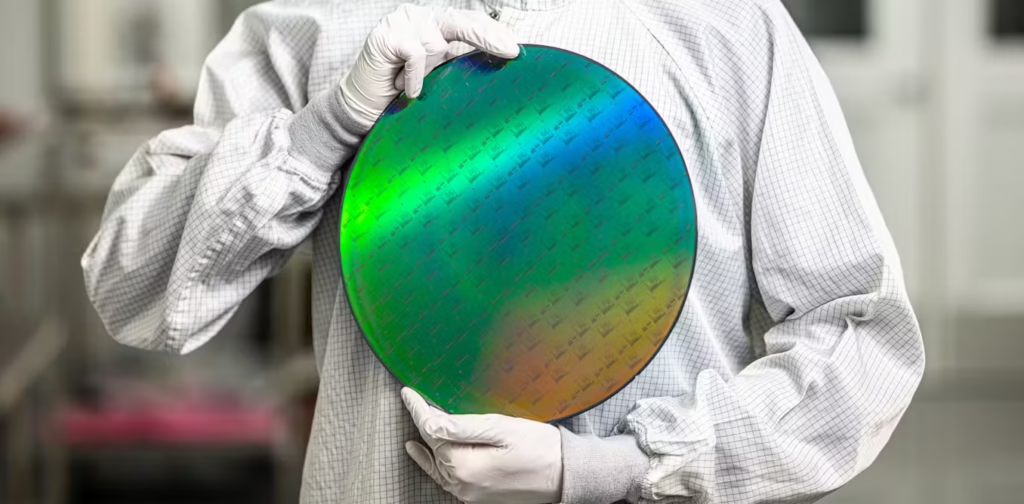For decades, the silicon chips in our computers have reigned supreme, processing information in bits – those trusty 0s and 1s. But a new paradigm is emerging, one that promises to shatter the limitations of classical computing and unlock unprecedented computational power: Quantum Computing.
What Exactly Is This Quantum Magic?
Forget bits; quantum computing harnesses the bizarre yet powerful principles of quantum mechanics. Instead of definite 0s or 1s, quantum computers utilize qubits. These qubits can exist in a superposition, meaning they can be both 0 and 1 simultaneously. Think of it like a coin spinning in the air, it’s neither heads nor tails until it lands.
Furthermore, qubits can become entangled. This spooky action at a distance, as Einstein called it, links the fate of two or more qubits together, regardless of the physical distance separating them. If you know the state of one entangled qubit, you instantly know the state of the other.

These quantum phenomena, superposition and entanglement allow quantum computers to explore a vast number of possibilities concurrently, making them potentially exponentially faster than classical computers for certain types of problems.
How Does This Quantum Circus Work?
Instead of the logic gates that manipulate bits in classical computers, quantum computers use quantum gates to manipulate the delicate states of qubits. By carefully orchestrating these gates, scientists can guide the quantum system to perform complex calculations.
Different types of quantum computers are being developed, each with its own unique approach to creating and controlling qubits. Some prominent technologies include:
These use superconducting circuits cooled to near absolute zero.
These use lasers to trap and manipulate individual ions.
These use photons (light particles) as qubits.
Similar to trapped ions, but using neutral atoms held in place by lasers.
Each technology has its own set of advantages and challenges in terms of scalability, coherence (how long qubits can maintain their quantum state), and error correction.
Who's Playing the Game Right Now?
The race to build powerful and stable quantum computers is on, with major players from both the tech industry and academia throwing their hats into the ring. Some of the current frontrunners include:
IBM:
Offering cloud-based access to their quantum computers and actively developing new architectures.


Google:
Making significant strides with their superconducting qubit technology and demonstrating quantum supremacy (though this remains a debated topic).
Microsoft:
Pursuing a topological qubit approach, which promises inherent fault tolerance.


Rigetti Computing:
Focusing on superconducting qubits and offering quantum computing services.
IonQ:
Pioneering trapped-ion quantum computers with high fidelity and long coherence times.


PsiQuantum:
Taking a photonic approach to build fault-tolerant quantum computers.
Beyond these giants, numerous startups and research institutions worldwide are contributing to the rapid advancements in the field.
Stepping Out of the Lab
Currently, several types of quantum computers are being actively developed and utilized:
- Superconducting Quantum Computers: Companies like IBM and Google have built quantum processors using superconducting circuits cooled to near absolute zero. These systems boast a growing number of qubits and are accessible through cloud platforms, allowing researchers and developers worldwide to experiment with quantum algorithms. For instance, IBM’s current flagship processor, as of late 2024, exceeds 100 qubits, and they continue to push the boundaries of scalability. Google has also demonstrated impressive qubit counts and experimental results with their superconducting architectures.
- Trapped Ion Quantum Computers: IonQ is a leading company in this approach, utilizing lasers to trap and manipulate individual ions as qubits. Trapped ion systems are known for their high fidelity (accuracy of operations) and long coherence times (how long qubits can maintain their quantum state). IonQ has showcased systems with over 50 high-quality qubits and is actively working towards scaling up their technology.
- Photonic Quantum Computers: Companies like PsiQuantum are pursuing quantum computing using photons (particles of light) as qubits. This approach leverages existing fiber optic infrastructure and has the potential for scalability. While still in earlier stages compared to superconducting and trapped ion systems, photonic quantum computers are showing promising progress.
- Neutral Atom Quantum Computers: This approach, explored by companies like ColdQuanta, uses lasers to trap and manipulate neutral atoms as qubits. This technology offers potential advantages in terms of scalability and connectivity between qubits.
The Future is Quantum: What's on the Horizon?
The potential applications of quantum computing are staggering and span across various industries:
- Drug Discovery and Materials Science: Simulating molecular interactions to design new drugs and materials with unprecedented properties.
- Financial Modeling: Developing more accurate risk assessments and optimizing trading strategies.
- Artificial Intelligence: Accelerating machine learning algorithms and enabling the development of more sophisticated AI.
- Cryptography: Breaking current encryption methods (a concern that is also driving research into quantum-resistant cryptography).
- Optimization Problems: Solving complex logistical challenges, such as optimizing supply chains and traffic flow.
- Climate Change Research: Simulating complex climate models to gain deeper insights and develop mitigation strategies.
While we are still in the early stages of the quantum era, the progress is undeniable. We are witnessing increasing qubit counts, improved coherence times, and the development of more sophisticated quantum algorithms.
Companies Embracing the Quantum Revolution (Now and Soon):
While widespread commercial application is still on the horizon, several companies are already exploring and experimenting with quantum computing for specific use cases:
- Pharmaceutical Companies: Investigating drug discovery and development.
- Financial Institutions: Exploring applications in risk management and algorithmic trading.
- Automotive Manufacturers: Looking into optimizing logistics and materials science.
- Logistics and Supply Chain Companies: Seeking solutions for complex optimization problems.
- Government and Defense Agencies: Exploring applications in cryptography and national security.
In the near future, we can expect to see more industry-specific applications emerge as quantum hardware matures and becomes more accessible through cloud platforms.
Quantum Realms
The buzz around quantum computing is also fueling interest in related fields:
- Quantum Cryptography: Developing secure communication methods based on the laws of quantum mechanics.
- Quantum Sensors: Creating ultra-sensitive sensors for various applications, from medical imaging to navigation.
- Quantum Materials: Discovering and engineering materials with novel quantum properties.
The Quantum Trend: A Revolution in the Making
Quantum computing is no longer a distant dream confined to research labs. It’s a burgeoning field attracting significant investment and talent, with tangible progress being made in hardware and software development. While challenges remain in scaling and error correction, the potential impact of this technology across industries is immense.
So, keep your eyes on the quantum horizon. This isn’t just another tech trend; it’s a fundamental shift in how we compute and a giant leap towards solving some of humanity’s most complex challenges. The quantum revolution is underway, and it promises to reshape our world in profound ways.
In conclusion, quantum computing is rapidly transitioning from a theoretical concept to a tangible reality. While still facing significant engineering challenges, the current generation of quantum computers, with their growing number of qubits and improving quality, are providing researchers and early adopters with unprecedented computational tools to explore the vast potential of this revolutionary technology. The journey into the quantum realm has begun, and its implications for science, technology, and society are immense.


